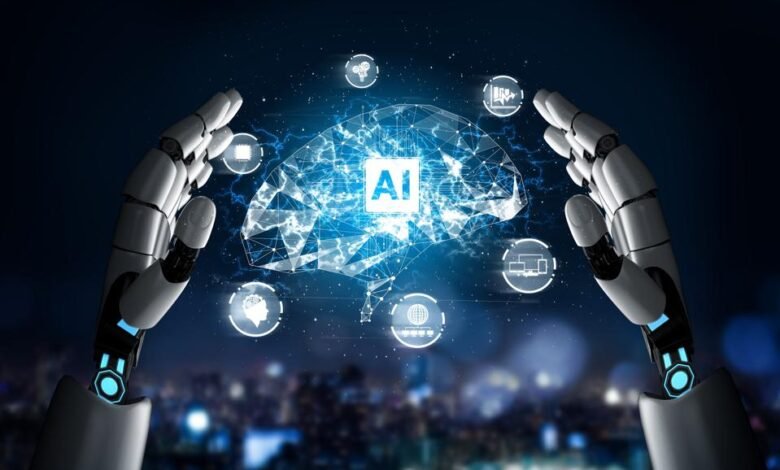The Impact of Artificial Intelligence on the Future of Work in 2023

Do you know the impact of artificial intelligence on the future of work? Artificial Intelligence (AI) is a branch of computer science that focuses on the Impact of AI and creating intelligent machines that can perform tasks that typically require human intelligence, such as visual perception, speech recognition, decision-making, and language translation. The goal of AI is to develop systems that can learn, reason, and adapt based on data, experience, and feedback. AI has been around for decades, but recent advances in machine learning, neural networks, and natural language processing have enabled AI to become more accurate, efficient, and accessible. Today, Artificial Intelligence is used in a wide range of applications, from self-driving cars to virtual assistants to fraud detection, and it is transforming the way we live and work.
Artificial Intelligence (AI) has rapidly become one of the most significant technologies in the world, and its impact on the future of work is undeniable. From automation to prediction and decision-making, Artificial Intelligence has revolutionized the way we work, and it will continue to transform the workplace as we know it. In this article, we will explore the opportunities and challenges presented by AI’s impact on the future of work.
Read More: Green Tech: Innovations Driving Sustainability and Climate Action
Opportunities: Impact of Artificial Intelligence
The adoption of Artificial Intelligence in the workplace brings numerous opportunities that can improve productivity, increase efficiency, and enhance the overall employee experience. Here are some of the most significant benefits:
- Automation: AI can automate repetitive and mundane tasks, allowing employees to focus on more critical and creative work. By freeing up time spent on routine tasks, employees can improve their productivity and concentrate on activities that require a human touch.
- Decision-making: AI can provide valuable insights and data-driven decision-making, allowing companies to make informed decisions based on accurate information. This can lead to better outcomes and help companies stay competitive in their respective industries.
- Enhanced Customer Experience: AI-powered chatbots and virtual assistants can provide 24/7 customer support, improving the overall customer experience. By using natural language processing, these bots can handle complex inquiries, providing quick and accurate responses.
- New job opportunities: AI can create new job opportunities that require specialized skills, such as data analysts, machine learning engineers, and AI trainers. As companies continue to invest in AI, these roles will become increasingly important.
Challenges: Impact of Artificial Intelligence
While AI presents many opportunities, it also brings challenges that companies and employees must navigate. Here are some of the most significant challenges:
- Job displacement: AI’s ability to automate tasks means that some jobs may become redundant. This can lead to job displacement, which can cause anxiety and uncertainty for employees. Companies need to have plans in place to reskill and upskill their employees to ensure a smooth transition.
- Bias and fairness: Artificial Intelligence algorithms are only as unbiased as the data used to train them. If the data used to train the algorithm is biased, the algorithm will also be biased. This can lead to unfair outcomes and discrimination against certain groups. Companies need to ensure that their algorithms are fair and unbiased.
- Security risks: AI-powered systems are vulnerable to cyber-attacks, and companies need to ensure that they have robust security measures in place to protect their systems and data. Artificial Intelligence can also be used to create deepfakes, which can be used to spread misinformation and cause harm.
- Privacy concerns: AI systems can collect vast amounts of data, which can lead to privacy concerns. Companies need to ensure that they are transparent about how they collect, store, and use data.
Read More: The Future of AI: How Artificial Intelligence is Transforming Industries
Conclusion:
the impact of Artificial Intelligence on the future of work is both exciting and challenging. AI technology has the potential to automate repetitive and mundane tasks, freeing up time for workers to focus on more complex and creative work. It can also help businesses make data-driven decisions and improve overall efficiency.
However, the adoption of AI also presents challenges, such as job displacement, skill gaps, and ethical concerns. As Artificial Intelligence continues to develop and become more prevalent in the workplace, it is important for individuals and organizations to be proactive in adapting to these changes and preparing for the future of work.
To take advantage of the opportunities presented by AI while mitigating the challenges, there needs to be a focus on upskilling and reskilling the workforce to ensure that individuals have the necessary skills to work alongside AI. Furthermore, ethical considerations should be taken into account in the development and deployment of AI to ensure that it is used in a responsible and ethical manner.
Overall, the impact of AI on the future of work will be determined by how effectively individuals and organizations are able to adapt to its adoption. With proper planning, preparation, and collaboration, AI has the potential to revolutionize the way we work and drive significant advancements in productivity and innovation.











